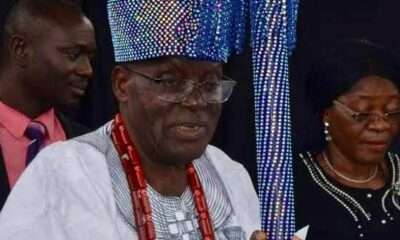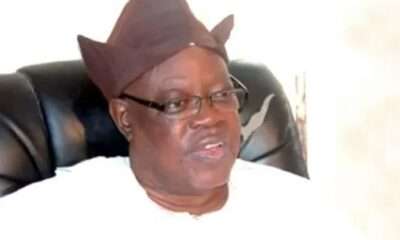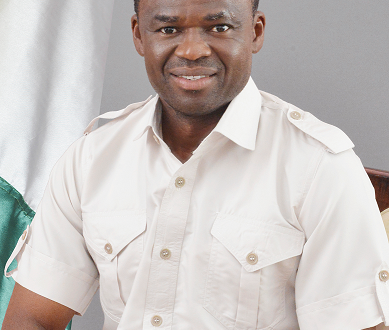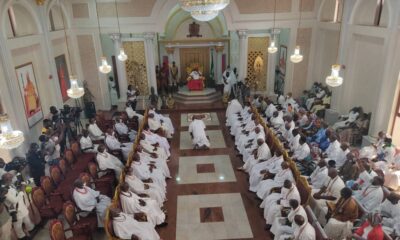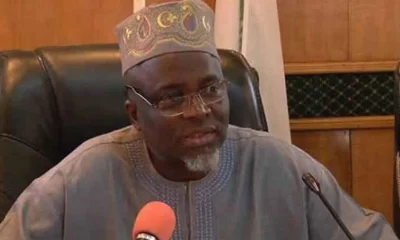News
Kingmakers Decide On Olubadan Today
Published
3 weeks agoon
By
Editor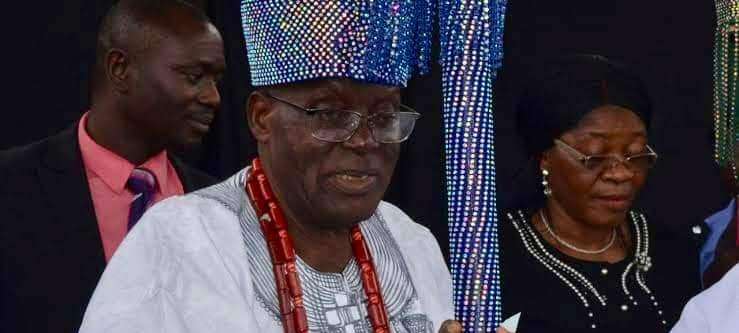
Barring unforeseen circumstances, the Olubadan-designate, Oba Owolabi Olakulehin, will be ratified to become the Olubadan of Ibadanland today by the Olubadan-in-Council and his name forwarded to the Oyo State Governor, Mr Seyi Makinde, for approval.
The meeting is scheduled to be held at the Olubadan Palace at Oja’ba in the Ibadan South East Local Government Area of the state.
The Otun Olubadan of Ibadanland and former governor of Oyo State, High Chief Rashidi Ladoja, had, on Wednesday, announced that the meeting, earlier scheduled for Thursday, was moved to Friday (today) in view of the public holidays.
The meeting is expected to bring to a halt, the controversies surrounding the nomination of Oba Olakulehin, after the demise of Oba Lekan Balogun on March 14, 2024.
READ ALSO: Kingmakers Divided Over Nomination Of Olubadan-designate, Oba Olakulehin
The PUNCH, however, gathered on Thursday that some of the Ibadan crowned Obas might not honour today’s meeting for reasons best known to them.
A source, who did not want his name in print, said, “I may confirm to you that some of them will not honour the invitation, even though they were duly informed. None of them (the kingmakers) will deny or say he hasn’t received the message to that effect.”
It was also gathered from another source that Oba Olakulehin may be present at the meeting today.
All eyes are, therefore, on the kingmakers who had been duly notified of today’s meeting to ratify and pronounce Oba Olakulehin as the new Olubadan of Ibadanland.
READ ALSO: JUST IN: Olubadan-designate, Olakulehin To Meet Kingmakers Today
In line with the Ibadan chieftaincy arrangement, the nomination of the new monarch must be made by the person next to him in his line at a meeting convened by the most senior chief in the other line.
The PUNCH reports that the Otun Balogun, Oba Tajudeen Ajibola, who is next in line to the Olubadan-designate, had declared that Oba Olakulehin was not physically fit to rule at the moment.
But Ladoja, speaking on Wednesday, countered Oba Ajibola’s position.
Ladoja, during an interactive session with newsmen at his Bodija residence in Ibadan, on Wednesday, described Oba Ajibola’s statement as not only personal opinion but inflammatory, insisting that Oba Olakulehin, as an elderly person, was not expected to act like a youth.
“Oba Olakulehin is not a 20-year-old man. He is not a 30-year-old or a 40-year-old man. He is over 80 years old. So, we can’t expect him to act like a youth,” Ladoja told newsmen as he further declared that whoever failed to honour today’s meeting after being notified could be substituted with another high chief next to him.
READ ALSO: FULL LIST: Olubadans With The Shortest Reigns
The Osi Balogun of Ibadanland, Oba Lateef Adebimpe, who is next in line to Oba Ajibola, was at the Alalubosa Government Reserved Area residence of Oba Olakulehin where he paid homage alongside three other kingmakers last Friday and declared the Olubadan-designate as hale, hearty and fit for the throne.
It was learnt that if Oba Ajibola did not come to the meeting today, Oba Adebimpe, who is next in rank to him on the Balogun line of the Olubadan, would nominate the new monarch.
After the meeting today, the kingmakers are expected to present their nomination to Governor Makinde for ratification and approval.
It will be recalled that Governor Makinde, during the Sallah homage to him by prominent Ummah to mark the end of Ramadan fasting on Wednesday, had said, “The Obas-in-Council are yet to make their nomination. When they make it, it will come to me and I will either say yes or no. But that has not happened. So, why are people focusing on things that are capable of dividing us? Those whose stock in trade is to keep looking for what to divide us should look for something else to do. They should rather focus on things that will unite us.”
PUNCH
You may like


JUST IN: Kingmakers Nominate Olakulehin As Next Olubadan


Kingmakers Divided Over Nomination Of Olubadan-designate, Oba Olakulehin


JUST IN: Olubadan-designate, Olakulehin To Meet Kingmakers Today


JUST IN: Olubadan Buried As Deputy Gov, Others Pay Tribute


FULL LIST: Olubadans With The Shortest Reigns


Next Olubadan-designate Unveiled

The Federal Government, through the Ministry of Solid Minerals Development, has announced plans to review rates of mining licenses and other sundry fees payable by mining operators in the country.
Speaking during a consultative meeting with stakeholders in the mining industry on Thursday in Abuja, the Minister of Solid Minerals Development, Dele Alake, stressed that the review has become inevitable if government is to effectively fulfil its obligations of providing an enabling environment for mining operations whilst also raising more revenue for government.
He added that the plan would also boost the capacity of government to effectively reposition the mining sector and solicited the support of stakeholders for the impending increase in fees for mining licenses and other sundry fees.
READ ALSO: EFCC Chairman Narrates How 17-year-old Hacked His Computer, Bank Account
Highlighting efforts to reposition the mining industry, the Minister revealed that asides from on-going reforms, the administration is sanitising the mining environment through the newly unveiled mining marshals, which he affirmed has been conducting operations in parts of the country to protect legitimate miners and combat illegal mining.
The minister in a statement signed by his special assistant on media, Segun Tomori said, “For us to continue to ensure that we secure the mining environment and keep putting in place measures that will ease the operational difficulties and challenges that confront miners, we need to review the rates of mining licenses and other sundry fees.
“We felt that we can’t just do this without letting you know because invariably, you are the players in the industry.”
Concerning the recent revocation of dormant mining licenses, the Minister noted that the government followed due process and extant laws guiding the action, emphasising that a 30-day restitution window still exists for operators that were affected.
It will be recalled that the Minister announced a restitution fee of N10m, 7.5m, 5m and 2.5m for Mining Leases, Small Scale Mining Licenses, Exploration License and Quarrying License respectively for revoked dormant licenses including those earlier revoked for default in payment of annual service fees.
In his submission, the Director-General of the Mining Cadastral Office, Engr. Obadiah Nkom, who also chair the fees review committee, stated that the committee recommended new rates that are affordable and will enhance the competitiveness of the fiscal regime of the mining sector in comparison with regional and global standards.
READ ALSO: JUST IN: Police Arrest Mastermind Of Abuja-Kaduna Train Attack
Speaking on behalf of the stakeholders, the President of the Miners Association of Nigeria, Dele Ayanleke commended the Minister for his efforts to put the mining sector on global frontburner, expressing support for ongoing reforms and plans to review fees payable by operators.
He urged the minister to consider challenges faced by miners and ensure the rates are affordable.
Other stakeholders in attendance include Representatives of Women In Mining, Gemstone Miners Association and top officials of the ministry.
News
EFCC Chairman Narrates How 17-year-old Hacked His Computer, Bank Account
Published
6 hours agoon
May 2, 2024By
Editor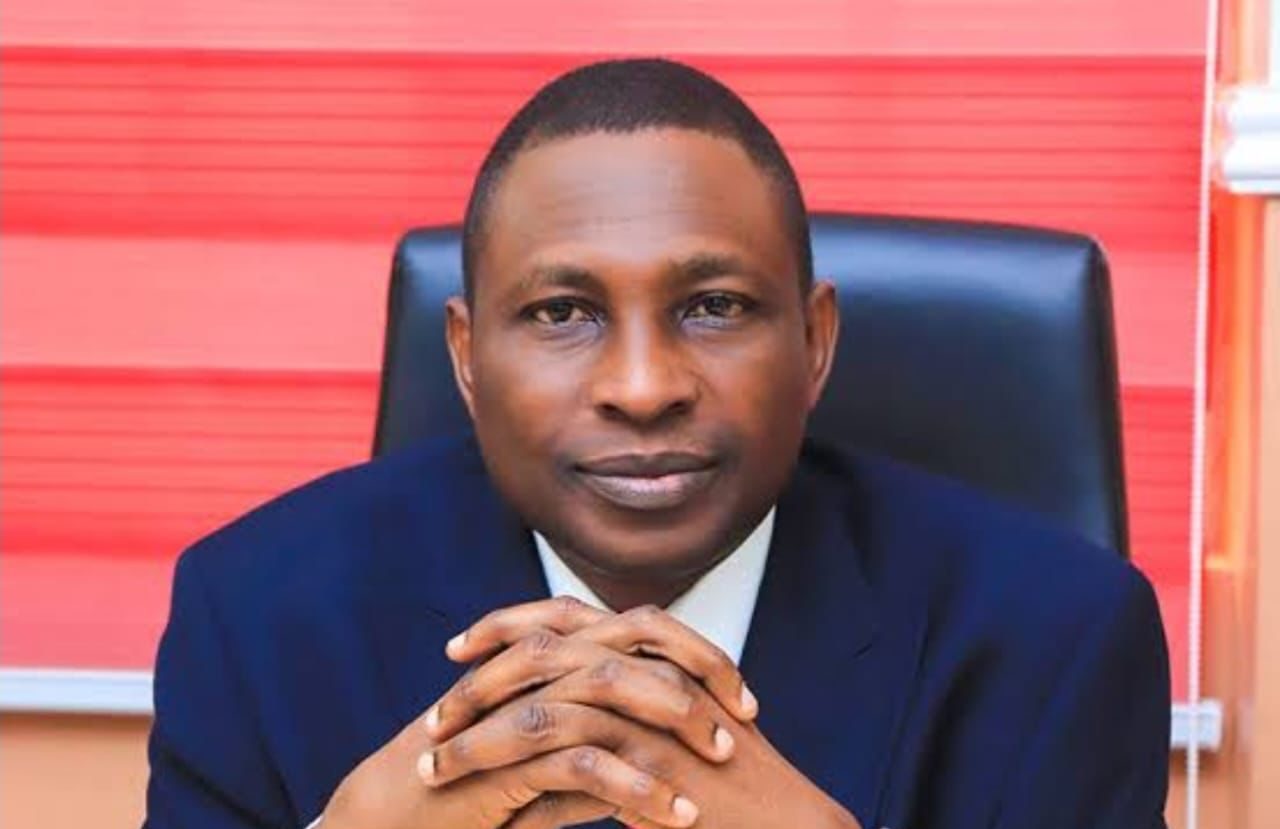
The Chairman of the Economic and Financial Crimes Commission, Ola Olukoyede, narrated an incident where a 17-year-old successfully hacked into his personal computer and bank account while being interrogated at his office in Lagos.
The anti-graft agency chairman made this known in a chat with editors at the EFCC Headquarters, Jabi, Abuja, last Tuesday.
Olukoyede recounted inviting the 17-year-old for questioning at his own office, only to witness the young hacker effortlessly bypass the security measures of his locked computer right before his eyes.
He said, “I brought into my Lagos office a seventeen-year-old boy who is studying History and Anthropology. He is in the 200 level. He is not doing anything science-related. The guy sat in my office in Lagos and demonstrated some things to me on my laptop.
“He asked for my number, I gave him my number and through my number, he got my BVN. He then mentioned the name of my account number to me at the bank. I didn’t tell him anything.”
READ ALSO: How Two Kenyan School Dropouts Made Prosthetic Arms For People With Disabilities
According to him, the country must take all necessary measures to discourage these young individuals, as their actions could lead to imprisonment or even fatal consequences.
“The problem is, I see crime in that, and I also see opportunities in it. So, if you leave these guys, we don’t make them know that what they are doing is wrong, if you leave them, they will continue to see it as a way of life to make money.”
He mentioned that due to their young ages, the EFCC would administer light sentences to punish youths for the cybercrimes they committed, while also focusing on helping them change their orientation.
“We plead for light sentences so that we can reorientate them and that’s part of what we’re doing. What joy will I derive from sending a 17-year-old boy to jail? You have destroyed his future. You have destroyed his career.
“Sometimes they give them options of fines and all of that conviction, so we bring them in, lecture them and talk to them.”
In a bold demonstration of his skills, the boy confidently informed Olukoyede that he could transfer up to 10 million naira from any account in a single transaction.
READ ALSO: Woman Kills One Year-old Son In Delta
He said the 17-year-old boy, when he was done, said, “Look, oga, I can make 10 million now. I will demonstrate it to you. I will move money from your account to mine.
“I said no, don’t do that in my office and he was ready to do that. When he opened my laptop, I didn’t give him the key to my laptop and he had access.
“When questioned about his involvement in cybercrime, the boy explained that his parents, who are both farmers, were unable to work on their farm due to security concerns.
“He has two younger ones. One is in JSS2 and the other is in SSS2. He is the one feeding his parents and responsible for the payment of tuition for his younger ones.
“I saw a Bill Gates in that guy.”
Olukoyede, however, assured the boy that he would take responsibility for his schooling if he was able to stop the criminal act.
“I told my family, we are going to do that.
READ ALSO: Naira Abuse: EFCC, Cubana Chief Priest To Settle Out Of Court
“I spoke to one of my friends who is also ready to help take up the schooling of the SSS 2 guy. So I’m still looking for someone who will take up the one for the JSS 2 sibling.”
This is not the first time the EFCC chairman has revealed the anti-graft agency’s plan to rehabilitate convicted internet fraudsters with reduced sentences.
Addressing a delegation of the National Association of University Students in March 2024, he said “when you think deeply, that tag ‘ex-convict’ is not a good thing. You can never tell where you will find yourself tomorrow, and they will want to profile you and discover that you are an ex-convict.”
“So, it is even in the interest of the youth that the EFCC is doing what it is doing to prevent them from indulging in the heinous act of cybercrime.”
News
Uganda President, Museveni Blasts Western Countries, Says ‘You Fund Seminars But Won’t Aid Manufacturing In Africa
Published
6 hours agoon
May 2, 2024By
Editor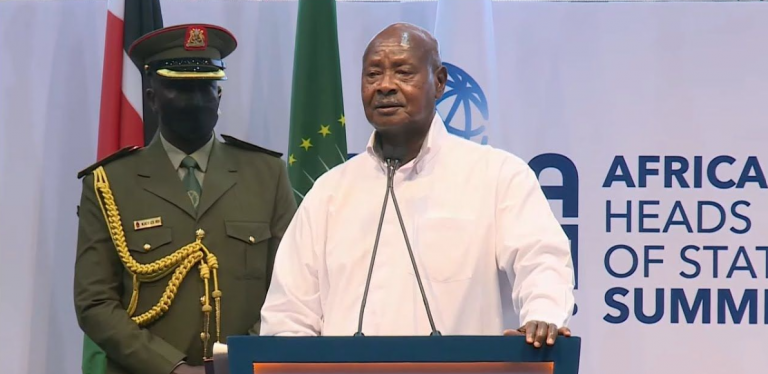
President Yoweri Museveni of Uganda took a bold swipe at world leaders during his speech at the World Bank’s International Development Association summit for African Heads of state, held in Nairobi, Kenya, on Tuesday.
In his remarks, Museveni opined that most of Africa’s problems predicted over 60 years ago were a result of philosophical, ideological, and strategic economic mistakes.
He alleged that a fundamental African problem is that aid from the World Bank and other Western bodies was majorly for profiteering.
“The crisis which is in Africa today is because of philosophical, ideological, and strategic economic mistakes which we have been talking about since the 1960s. It is not an accident when you see the crisis in many African countries, the collapse of States. We predicted this in the 1960s – philosophical, ideological, and strategic mistakes. I don’t have time to amplify each one but I was very happy to hear the president of the World Bank talking about prosperity instead of profiteering.
“Aid has been for profiteering, this has been the problem. Now, the World Bank people and other groups have been talking about sustainable development. Even in your documents, I have seen those words there, sustainable development”, Museveni stated.
READ ALSO: VIDEO: Lagos Uncovers Another Under-bridge Apartment
He argued that what Africa needed to thrive as a continent was not sustainable development as always suggested by the World Bank, and other key players in economic development, but social and economic transformation.
He urged the World Bank and world leaders to quit pushing sustainable development as a key factor in achieving a more developed African continent.
“I would ask you to change those words in your documents. Africa does not need what you could call sustainable development. Africa needs social and economic transformation. The main reason why there’s no growth is because the growth factors are not funded, they are not even understood. What are the growth factors, we now talk of private sector growth. Yes, but for the private sector to grow what does it need? It needs a low cost of production”, he said.
In his opinion, the main reason Africa remains underdeveloped is because the growth factors are not funded and they are not understood by the Western world.
He added that for Africa to be more developed and independent, the private sector needs funding. According to him, adequate funding for the transportation, power and agricultural sectors will boost low production costs.
“Ministers of finance, what are the low costs of production? Number one is transport. You must have low transport costs. Where do low transport costs come from? The railway? If you don’t fund the railway how will you get low transport costs?
READ ALSO: How Two Kenyan School Dropouts Made Prosthetic Arms For People With Disabilities
“Wonderful people, IMF, where will low-cost operations come from if you don’t have a railway? If you don’t fund the railway, how would you get low transport costs? I have been here for the last 64 years, I have been watching as a student leader, as a freedom fighter and now as the leader of a country. How many railways have been constructed or funded in Africa? The few that have been was by China, the Tanzanian railway to Zambia, and recently, another one here in Kenya. Tanzania on their own is building a railway line. So if you’re talking of developing Africa, fund the railway. If you fund the railway, you will have a low cost of transport and you can produce cheap products which can be bought all over the world.
“The second cost pusher is electricity. If you don’t fund electricity and you talk about sustainable development, what are you then talking about? We must have low-cost electricity not exceeding 5 cents per kilowatts, per hour. That is what I insist on in Uganda. I am tired of all these stories, I have put my foot down saying I don’t want to hear those stories. Uganda is a developing country and it will continue to develop because I don’t entertain nonsense anymore.”
Speaking further, Museveni who has ruled Uganda for over 40 years accused the World Bank and Western leaders of refusing to lend him money for capital projects such as the establishment of the Uganda Development Bank.
He lamented the rate at which loans are promptly approved and grated for frivolities but not for serious projects that would yield economic gains.
READ ALSO: Naira Abuse: EFCC, Cubana Chief Priest To Settle Out Of Court
He said, “Borrowing, for what? Capacity building! Imagine! They call you to a hotel where you eat Chapati and mandazi, and they say that is capacity building. Capacity building should be on the ground and not just in seminars. So, the second point your Excellencies is electricity. The third one; is for those people who talk about private sector growth, I have been trying to borrow money for our Uganda Development Bank, a bank which funds manufacturers, but no, I don’t get support for that.
“They say they want my people to go to commercial banks. Those commercial banks are to encourage import because the only person who can borrow money from a commercial bank and pay it back is a trader who goes to China, Dubai buys goods, sells them quickly and pays the loan back. So, if you are serious, I need it here, about the low-cost funding for manufacturing, not stories.”
“How about funding for irrigation? Because if you want to stabilise agriculture, a country like Uganda is very rich, we have got everything. But sometimes, we have some erraticness because of the rains. So, to stabilise irrigation I’ve been trying to look for a loan for irrigation but I can’t easily get it, it is very difficult to get. But a loan for seminars is very quick.”
PUNCH

PICTORIAL: C&S Church Ayo Ni O Installs New Leader

Court Remands Tenant For Setting Landlord’s House On Fire In Ibadan

Officer Who Shot Man Dead During Fuel Queue Tumult Identified — Lagos Police
Trending

 Politics2 days ago
Politics2 days agoWhy Candidate Who Needs Interpreter Can’t Be Edo Gov – Shaibu

 Metro4 days ago
Metro4 days agoEdo Police Arrest Suspected Cultists Who Allegedly Killed Rival In His Daughter’s Presence

 Business3 days ago
Business3 days agoCustomers Panic As CBN Bans Opay, Palmpay, Others’ New Accounts

 News4 days ago
News4 days agoJUST IN: Popular Gospel Singer Is Dead

 News1 day ago
News1 day agoEx-policeman Who filmed Wife Having Wex With Her Superior Found Guilty Of Stalking

 News3 days ago
News3 days agoOoni: Suspended Benin Palace Functionaries Banished

 News3 days ago
News3 days ago2024 UTME: JAMB Withholds Results Of 64,624 Candidates

 Metro4 days ago
Metro4 days agoGunmen Assassinate Governor Aiyedatiwa’s Campaign Coordinator In Ondo

 News2 days ago
News2 days agoJUST IN: FG Approves Salary Increase For Civil Servants

 News3 days ago
News3 days agoBREAKING: JAMB Releases 2024 UTME Results
